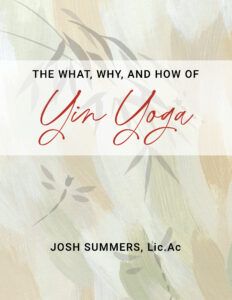Last week I tried something different. At the end of the summer, I often sit a retreat at the Insight Meditation Society. But this year, the center’s schedule and my own weren’t compatible, so I decided to undertake a stay-cation of sorts and do a self-retreat at home, in the middle of Cambridge.
The plan was to follow a simple structure, similar to the daily routine at IMS. Basically, throughout the day, I’d alternate between periods of sitting (45min) and walking (25min) meditation. I had agreed to talk for an hour with my fiancée over dinner, but otherwise remain in silence. And on most days, I scheduled a 45 minute Skype interview with my teacher, Kenneth Folk.
These kinds of retreats are never as easy or as blissful as many on the outside like to imagine. Often there is a deep reckoning with existence, a sharpening of perception that reveals within its unflinching gaze the diabolical machinations of the neurotic mind. But that deep ‘seeing’ is also a catalyst for insight, specifically insight into stress and its release.
During an interview with Kenneth on Day 2, I found myself whining about my perception of not making any progress. It boiled down to a blasé attitude of “Been there, done that. Seen it all before. When’s the fruit gonna fall?? Enough already!!”
Now, it doesn’t take an enlightened being to figure out that my assumptions about what ‘should have been happening’ were getting in the way. But Kenneth did point out something that ultimately became a mantra of sorts: “It’s a relief,” he said, “when you realize: ‘I don’t know how this should be’.” In other words, when I was able to objectify the process of anticipation or expectation — and realize that all anticipation was predicated on a projected idea of how it should be — I would feel a tremendous relief.
So I started to repeat this at the beginning of meditation sessions, “It’s a relief that I don’t know how this should be”, and I’d repeat it occasionally in the middle, too. Almost immediately it would be as though a layer of suffocating energy would dissolve, replaced by an extremely fresh and intimate sensitivity with the unfolding moment. And in abandoning the way I thought it should be, I felt a tremendous humility within NOT knowing.
Later I found this passage from Adyashanti which speaks well to this theme:
“In order to see through the mind and the deeply ingrained sense of separation that continues to generate so much confusion and suffering in our lives, we must take a chance; we must leave what we know and enter that mysterious reality of the unknown. The unknown is a very intimate place. You may feel very exposed when you open yourself to this inner space of unknowing, but really, the unknown is our only doorway. It’s by allowing ourselves to not know that we can become truly sensitive, open and available. It’s the most humbling thing in the world to admit that we don’t know, to surrender to the fact that we can’t know the nature of reality with our minds. This realization is what opens the way for us: the way to the greatest knowing is through not knowing.”
This concludes my reflections on Wise Energy. Here, the energy is applied towards letting go of the known.
Originally published on September 9, 2013
Practice Opportunities:

